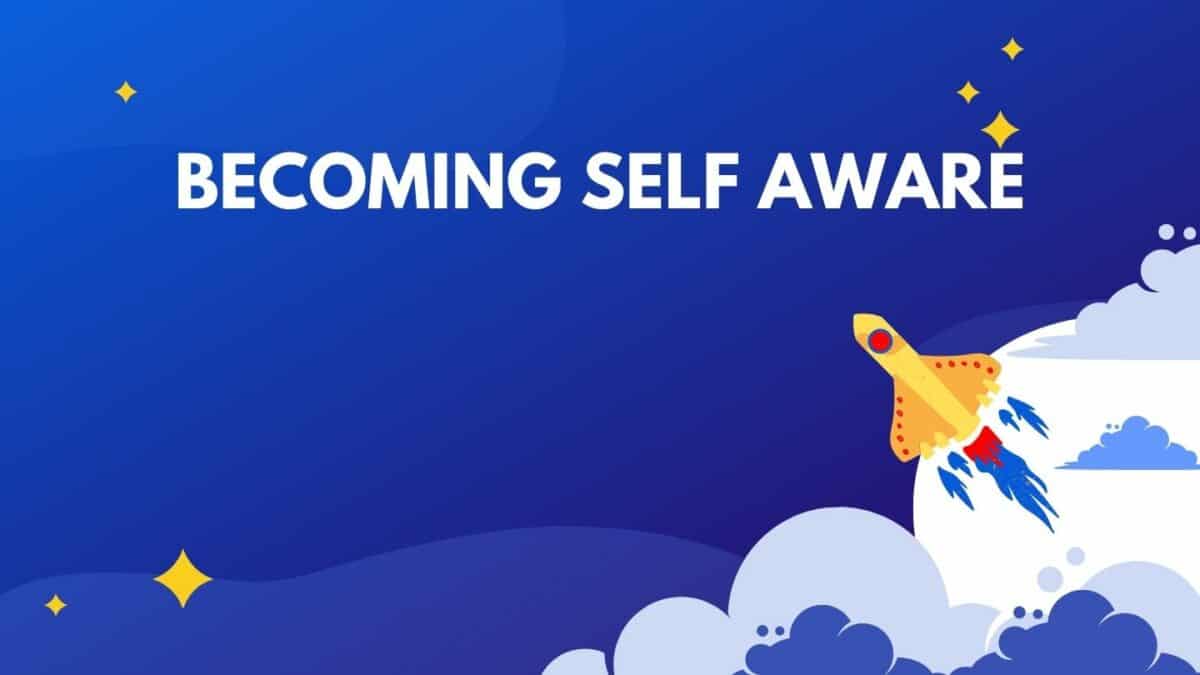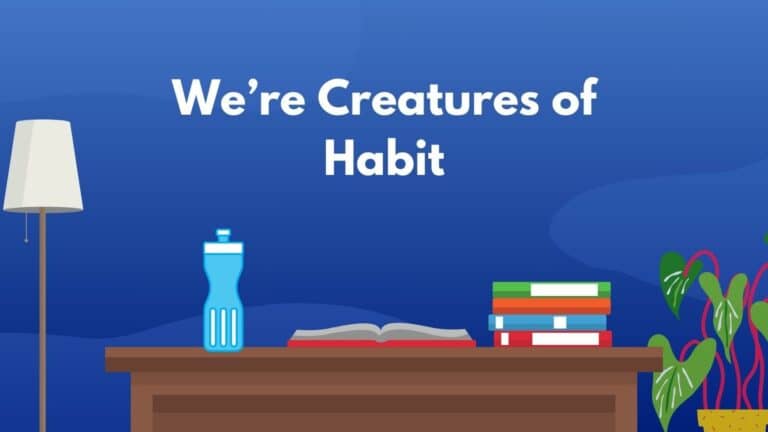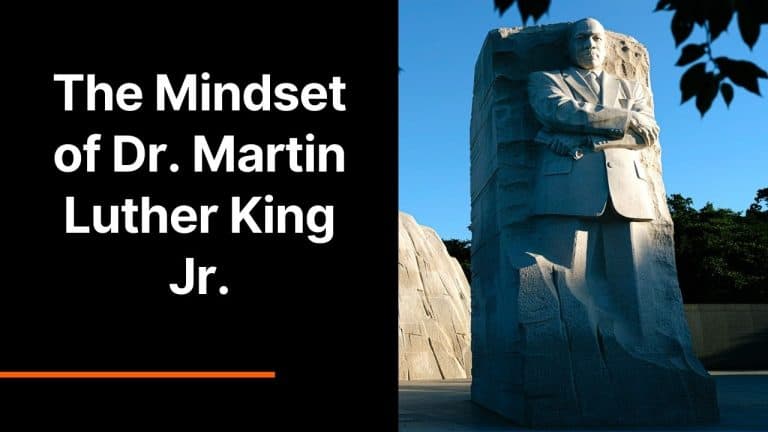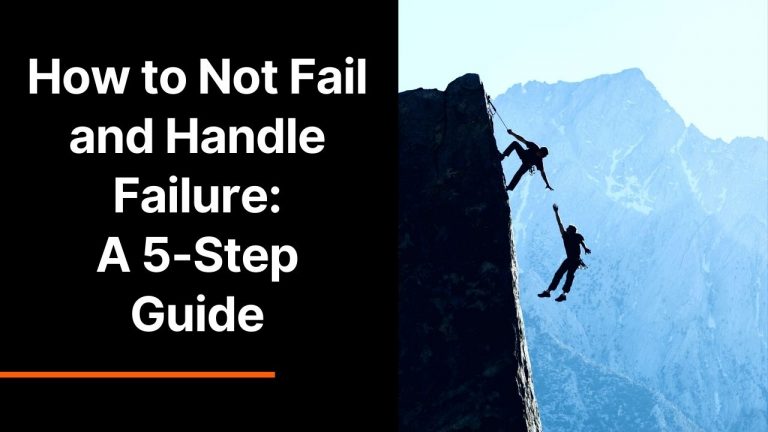Lack of Self Awareness and How to Become Self Aware
SUMMARY: Amidst the complexities of life, a lack of self awareness often leads to us misunderstanding our emotions, reactions, and relationships. This causes various personal and interpersonal issues in our lives. But, a thorough understanding and mindful observation of ourselves can significantly enhance our personal growth, lead to success, and more happiness — satisfaction in life.
Have you ever felt the frustration of a regrettable decision(s)?
And if so, how often did you wish you understood yourself more so you could navigate those moments better?
Welp, let’s understand ourselves a little better in this article.
I’ll be covering:
- The pitfalls of lacking self-awareness
- Why self-awareness matters in life
- The concept of how we’re hard-wired and the role it plays
- Practical steps you can take to become more self awareness
Stay tuned as we embark on this journey of self-discovery, finding ways to improve our relationships, decision-making abilities, and overall quality of life.

The Pitfalls of Not Being Self Aware
So, what exactly does it mean to lack self awareness, and why is it such a big deal?
Lack of self-awareness refers to a situation where a person is not conscious of their behaviors, emotions, reactions, and the impact they have on others.
This lack of understanding can lead to misunderstandings, miscommunication, and unhealthy relationships, both personally and professionally.
Why a Lack of Self Awareness is a Big Issue:
- Poor Emotional Intelligence: People who lack self-awareness often struggle to understand and manage their own emotions, let alone empathize with the feelings of others. This can lead to difficulties in interpersonal relationships and conflicts.
- Impaired Decision Making: Self-awareness is a critical factor in making informed decisions. Without a clear understanding of one’s own values, preferences, and biases, it’s difficult to make decisions that’re truly beneficial.
- Limited Personal Growth: Self-awareness is the foundation of personal development. By understanding our strengths and areas for improvement, we can take steps to grow and improve. Without this awareness, personal growth can be stunted.
- Negative Impact on Career: In a professional setting, a lack of self-awareness can limit your career progression. It may prevent you from working well in a team, responding appropriately to feedback, or adapting to changes.
- Unhealthy Relationships: A lack of self-awareness can lead to dysfunctional relationships. If one is unaware of their actions and how they affect others, it can lead to resentment, conflict, and a breakdown in communication.
Signs of a Lack of Self Awareness
- Struggling With Communication: You don’t quite understand the impact of your words and actions on others.
- Difficulty Finding Authentic Desires: You may not know what you really want or need.
- Repeating Mistakes: You make the same errors without understanding why.
Each of these issues takes a toll not only on your personal growth, but the direction of your life and relationships.
The Power of Self-Awareness and Why It’s Key in Life
When self-aware, you make better decisions, have healthier relationships, and grow as an individual. And to truly understand its importance, let’s go into these benefits, and look at some examples that shows the power of self-awareness.
Promotes Enhanced Relationships
- One of the primary advantages of self-awareness is the ability to foster and maintain healthier relationships. Because when you know your feelings, behaviors, and responses, you gain a better understanding of how your actions can impact others. Which, in turn, lets you align your actions with empathy. This improves your relationships both professionally and personally.
Bolsters Decision-Making
- Self-awareness leads to improved decision-making. When you understand your strengths, weaknesses, and biases, you become better equipped to make informed choices that align with your overall goals and values.
Drives Personal Growth
- Awareness of your thoughts and emotions is the first step towards personal growth. Self-awareness puts you in the driver’s seat of your mind, allowing you to steer your thoughts and feelings towards positivity, resilience, and growth.
Backing of Research and Expert Opinions
- Many psychologists and experts strongly endorse the importance of self-awareness. Dr. Tasha Eurich, a psychologist, states self-awareness is the secret weapon for habit change.
A Personal Experience and The Power of Self-Awareness
- Increased self-awareness has worked wonders for me. For instance, by acknowledging my procrastinating tendencies, I could devise strategies to combat them effectively. This led not only to improved productivity but also drove a positive transformation in my personal and business life.
Understanding How We’re Wired
In the quest to become self-aware, we should embrace the concept of understanding how we’re wired. This means recognizing the instinctual behaviors, traits, and tendencies that shape our actions and reactions. This understanding creates a foundation for increased self-awareness and contributes significantly to a deeper personal comprehension.
The Concept of Being Hard Wired
- Being hard-wired refers to a set of inherent behaviors and traits that primarily guide our response to situations. These are typically instilled during our early developmental stages of life and profoundly affects our worldview.
How Understanding Your ‘Wiring’ Contributes to Self Awareness
- Knowing your default settings or ingrained patterns enables you to recognize why you react in certain ways. This recognition is a huge step in becoming self-aware.
Unearthing how we’re hard-wired is a fascinating journey that eventually leads us to a more profound recognition of ourselves. By understanding these instinctual behaviors and traits, we can develop strategies to manage them more effectively, thereby creating an environment for personal growth and heightened self-awareness.
Developing Self Awareness: Practical Steps You Can Take
With practical, step-by-step guidance, you can make substantial progress towards becoming more self-aware. Here’s a set of tangible steps and resources that can help fortify your self-awareness.
Taking Regular Personal Inventory
- Just as businesses periodically audit their assets, we need to do a ‘personal inventory.’ Set aside time regularly to evaluate your thoughts, feelings, and reactions. Be honest with yourself, your strengths, weaknesses, and areas for improvement.
Practicing Mindfulness
- Mindful practices like stretching and meditation can significantly help achieve a higher level of self-awareness. They allow you to pause, reflect, and engage deeply with your thoughts and emotions.
Seek Feedback From Trusted Loved Ones
- Honest feedback from those who know you well can uncover blind spots in your self-awareness. So encourage open dialogue about your behavior and how it affects others. Then balance this feedback with your self-assessment to gain a well-rounded perspective.
Reading and Resources
- Reading books on psychology and self-improvement can provide valuable insights into human behavior and self-awareness. Books like “Insight” by Tasha Eurich, and resources like the Myers-Briggs Type Indicator (MBTI) personality test, provide an excellent starting points.
Personal Experience with Developing Self-awareness
- When I first started working on my self-awareness, I found keeping a journal helpful. This practical step helped me understand my patterns, reactions, and emotions better. Over time, with consistent practice, I noticed a significant transformation in my understanding of myself and my interactions with others.
Developing self-awareness is a journey that requires commitment and practice. By incorporating these steps into your routine, you’ll begin to understand yourself. This paves the way for personal growth and improved relationships.
Don’t Let a Lack of Self Awareness Hold You Back
Self-awareness is the heart of personal and professional growth.
Being self-aware leads to better relationships, improved decision-making, and overall fulfillment in life.
Because in this life, cultivating self-awareness is not a luxury. It’s a necessity.
Frequently Asked Questions on Self Awareness
What is self-awareness?
Self-awareness is the ability to recognize and understand your moods, emotions, and drives, as well as their effect on others. It’s the first step in understanding why you behave in a certain way and how your behavior impacts others.
Why is self-awareness important?
Self-awareness is key in life because it allows you to understand your emotions, strengths, weaknesses, drives, values, and goals, and recognize their impact on others. This understanding is crucial for personal growth, establishing robust relationships, and making sound decisions.
How can I improve my self-awareness?
Improving your self-awareness is a continuous process. You can use various strategies like journaling your thoughts and feelings, seeking honest feedback from those around you, mindfulness and meditation, reading educational materials, or even seeking professional help like coaching or therapy.
Is a lack of self-awareness harmful?
A lack of self awareness can hinder personal and professional development. It can lead to misunderstandings, missed opportunities, and strained relationships. It limits your ability to recognize your shortcomings and hampers personal growth.
What does it mean to be ‘hard-wired’?
Being ‘hard-wired’ refers to the instinctual behaviors, traits, and responses we have. These often influence our reactions and decisions. Self-awareness allows us to understand these hard-wired patterns and fix them if needed.






